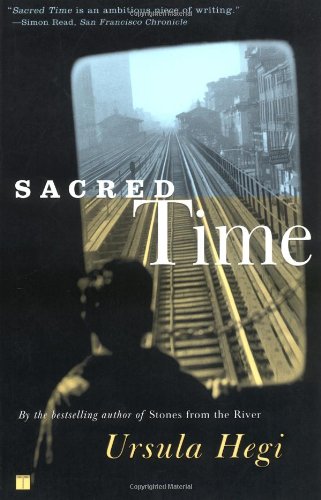Sacred Time
“…it came to me that family is the most violent unit, and I felt certain that retribution would come from within my family.” Ursula Hegi has moved from her customary German-focused stories to depicting a middle-class Italian family in the mid-20th century. We meet Leonora and Victor whose attempt to help Floria and her twin girls, Belinda and Bianca, becomes tragic. The momentous act, its causes and effects are told from three points of view: Anthony, Floria and Belinda. Hegi has definitely captured the possessive nature of Italians as well as its invasive guilt, depression, and grief forever pervading their lives. The females in this novel are strong characters who explore their psychological as well as cultural history, determined to process the past in order to free their future.
Uncle Malcolm’s crooked nature lands him in the never-named “elsewhere” (jail) while his wife, Floria, and daughters are bound to the charity of relatives. The rest of the family flourishes in the Italian food business. Indeed food in this novel is often the typical Italian panacea for mending arguments and restoring temporary harmony. Floria travels to a Genoese village in Italy where the largest structure is the church and “the cemeteries are situated where the earth rises to its highest point. To make it easier for the dead to start their way to heaven…But first we have to leave the dead.” Most of the characters choose separation, divorce, and reunion as the alternative coping paths chosen to cope with loss.
Hegi hilariously captures Italian humor in the first fifty pages and occasionally after the trauma that changes everyone’s lives. Readers who don’t fear the exploration of the mind, body, and spirit will enjoy Hegi’s latest story about family dynamics, albeit weighed by heavy-laden attempts at recovery of that innate Italian joy.










